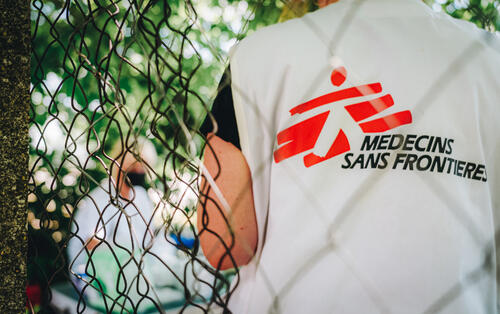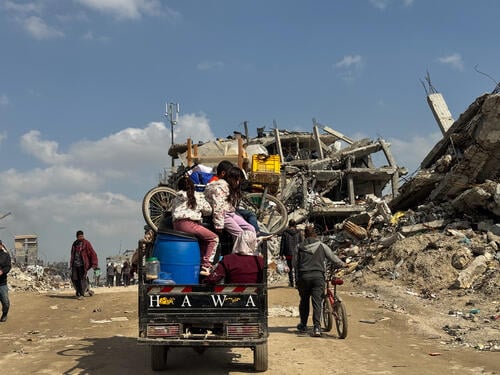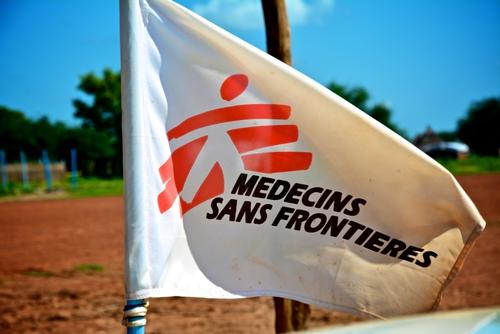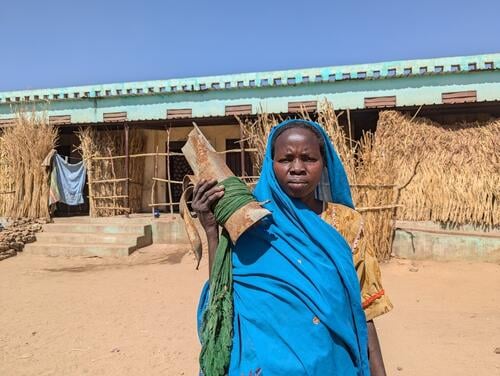- People crossing the Serbia-Hungary border are being subjected to shocking violence, allegedly perpetrated by Hungarian authorities.
- MSF has collected patient testimonies and medical data that indicate people are being denied access to basic services, beaten, and humiliated in their attempts to cross the border.
Belgrade/ Brussels - Testimonies from patients and corroborating medical data from Médecins Sans Frontières (MSF) indicate repeated use of violence, allegedly committed by Hungarian authorities, against people crossing the border between Serbia and Hungary.
Beatings with belts and batons, kicking, punching, various forms of humiliation, use of pepper spray and teargas are all reported to be common deterrence practices, prior to pushbacks and denial of assistance.
For more than eight years, MSF doctors and nurses have continued to treat and record accounts of people being systematically beaten, humiliated, and abused at borders for seeking safety in the European Union.
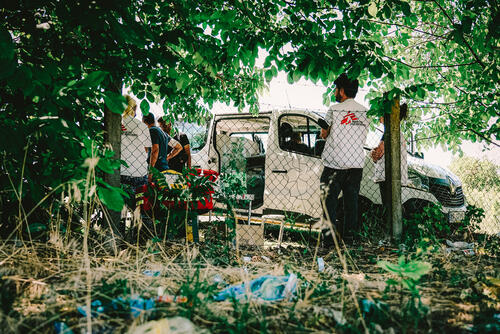
“The consistency and regularity of violence we treat at the Hungary-Serbia border is indiscriminate,” says Andjela Marcetic, MSF medical doctor in Serbia. “Every week, we see several patients, including some children, with severe bruising, deep wounds and cuts, dislocations and fractures, often on their legs, arms and sometimes on the head.”
“The physical injuries we treat in medical consultations are consistent with the testimonies of the patients who describe violent beatings at the hands of Hungarian police prior to pushbacks to Serbia,” says Marcetic. “While we can treat some of the wounds, we are also concerned about the long-term repercussions of such trauma on their psychological wellbeing.”
Since January 2021, MSF mobile medical teams have treated 423 patients with injuries, reportedly due to violent incidents at the Hungary-Serbia border. Most of these accounts follow a similar pattern of beatings, denial of access to basic needs, and harassment, often with racially charged humiliation.
Some people say they experienced theft and the destruction of personal belongings, while others were forced to strip, even in cold winter temperatures, and sometimes endured other forms of humiliation such as being urinated on by border officials during roundups
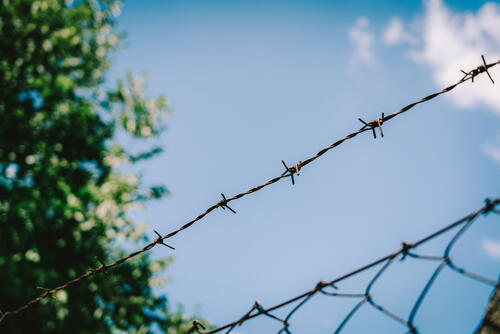
MSF also treats injuries resulting from people falling off the four-metre-high system of fences and razor wire built along the border. “One patient had a two-centimetre-deep cut on his upper lip because of the razor blades on the border fence. Many others report fractures all over their bodies from falling while trying to cross,” says Marcetic.
Several patients, including two unaccompanied minors, reported to MSF that they were transported to a small shipping container before being expelled to Serbia. Here, they say, border officials systematically assaulted them and regularly released pepper spray inside the container. Two patients reported the additional use of teargas, which is apparently dispersed inside the container to force people to create space for newcomers.
“We were brought to a small white container in between the fences with 40 other people. We spent approximately 12 hours in the container. I asked to go to the bathroom, but they did not allow me to go. [Border authorities] were repeatedly spraying our faces with pepper spray and regularly spraying the inside of the container from a small window on the side,” explains ‘A’, an MSF patient.
“It made me cough. It had a bitter taste, and we were not able to breathe,” adds ‘E’, another of MSF’s patients.
The container is described as being two by four metres in size, with a single door and sometimes windowless. In their testimonies, patients said they were denied water, food, access to toilets and were sprayed if they demanded any of these basic needs. Further exchanges with other community members have highlighted that this practice is not isolated but frequently observed on a wider scale.
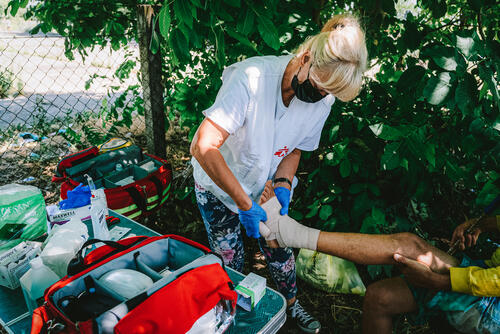
“These accounts indicate that European Union member states continue to intentionally use violence and harmful infrastructure to deter people from seeking asylum in the European Union,” says Shahbaz Israr Khan, MSF head of mission in the North Balkans. “They’re investing in razor blade fences and drones while turning a blind eye to disturbing and unprecedented levels of violence at borders.”
“Not only do these practices cause serious physical and psychological harm, but they also push people to travel more dangerous routes,” says Khan.
MSF has been present in Serbia since 2014, providing medical care to migrants in transit through the Balkan route. In 2022, two mobile clinics are providing primary healthcare, psycho-social support and health promotion activities in informal settlements in northern Serbia, close to the Hungary-Serbia and Serbia-Romania borders. To date our medical teams have treated 1844 patients. Since 2021, 423 patients have been assessed and treated for physical injuries, mostly on the arms and legs, including contusions, articular or skin lesions allegedly due to physical assaults at the hands of Hungarian border forces or because of lacerations due to the razor-wired fence along the border. All the patients who were involved in a violent incident at the border reported being pushed back into Serbia.



